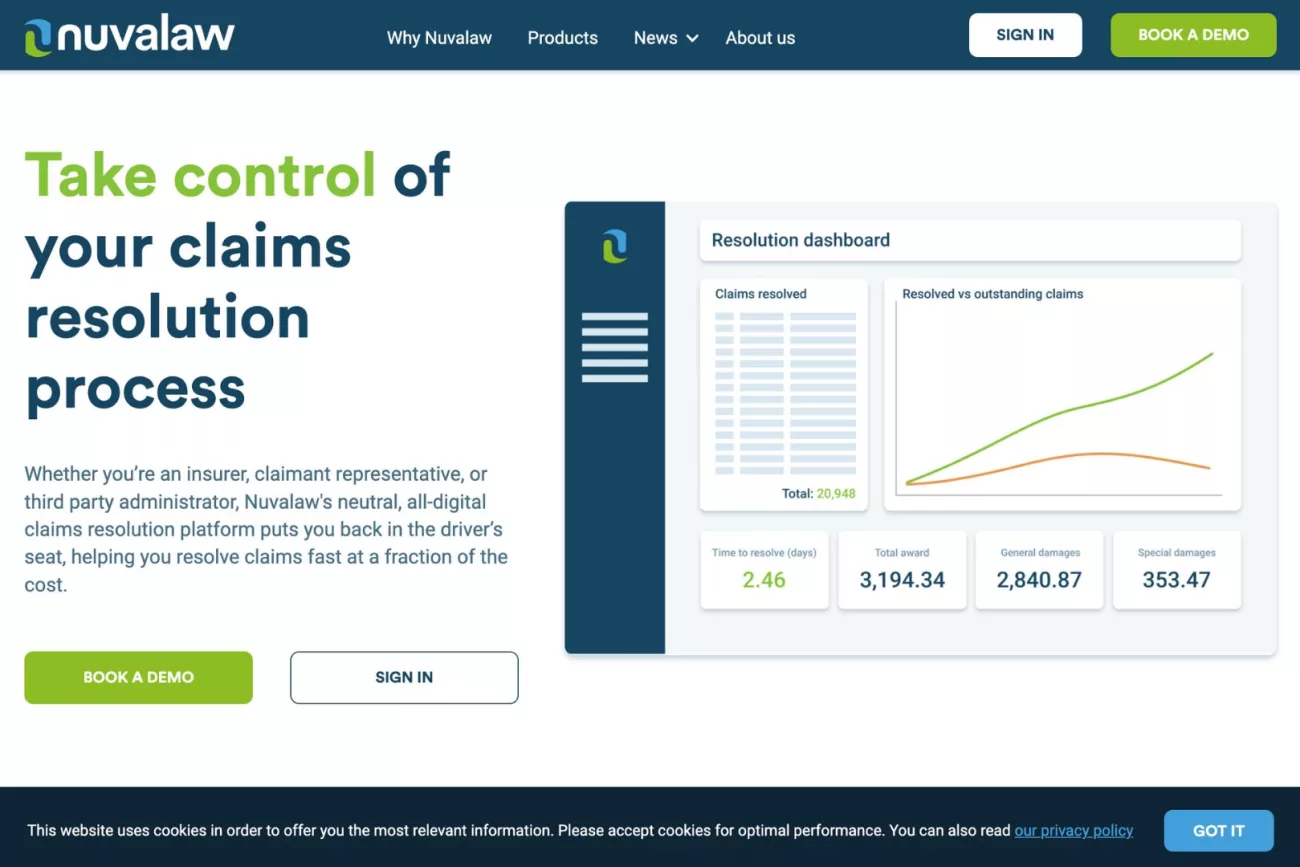
Key Points
- AI Transformation: AI is fundamentally changing the legal sector, automating tasks, and urging law firms to evolve their roles and services.
- Role of Lawyers Redefined: Lawyers are transitioning from administrative tasks to focus more on strategic consultation and high-level decision-making.
- Strategic Adaptation Needed: Law firms must adapt by integrating AI into their practices, enhancing client services, and upskilling their teams.
- Ethical and Responsible AI Usage: Ethical considerations and responsible AI use are paramount, requiring new policies and continuous learning.
5 Ways to Optimize Legal Matter Management in Small Law Firms
Discover how to enhance your small law firm’s efficiency and client satisfaction with our top
Facebook & Google’s Unreleased Secret Technology
Delve into the world of facial recognition! From Silicon Valley giants to legal dilemmas, uncover
Malpractice Lawyer for Patient Abandonment in NYC
Mike Ruggles Founder & CEO Instagram Linkedin Follow me on Instagram & LinkedIn for exclusive
AI: The Catalyst Forcing Law Firms to Abandon Tradition?
Redefining the Legal Landscape: AI isn’t just supporting the legal sector; it’s reshaping it entirely. The traditional law firm hierarchy is facing potential obsolescence in this new AI-driven era.
Hard-Hitting Predictions: A Wake-Up Call for Legal Professionals
A Tipping Point Revealed by Goldman Sachs: The recent analysis by Goldman Sachs has unveiled a startling reality for the legal profession. Nearly half of all legal tasks are on the brink of being automated through AI technologies. This revelation is more than a mere statistic; it signals a radical shift in the way legal services are rendered and consumed.
The implications of this change extend to every corner of the legal profession, calling for an immediate and comprehensive strategic response from law firms. It’s a wake-up call that challenges the traditional way of practicing law and necessitates a reevaluation of the role of legal professionals in an AI-dominated future. Law firms must now contemplate a future where AI is not just an ancillary tool but a core component of legal service delivery.
Practical Steps for Law Firms in the AI Era
- Embrace AI Literacy: Law firms must prioritize comprehensive AI education for all staff, emphasizing its practical applications in legal contexts.
- Revolutionize Service Delivery: AI’s efficiency calls for a departure from hourly billing to more innovative, value-based pricing models.
- Elevate Legal Roles: Shift the focus of legal professionals to complex problem-solving and high-level strategic thinking.
- Navigate Ethical AI Use: Develop an ethical framework for AI utilization, addressing new challenges in privacy, data security, and ethical decision-making.
- Foster AI Partnerships: Establish partnerships beyond the legal sector, including tech innovators and academic institutions, to stay at the forefront of AI developments.
Navigating the AI Disruption in Law: Opportunity or Peril?
A Paradigm Shift in Legal Practices: The impact of AI in law extends far beyond increasing efficiency and reducing costs. It’s bringing about a fundamental transformation in the nature and scope of legal work.
This shift is redefining what it means to practice law, challenging long-standing legal doctrines, and even altering the very fabric of legal ethics and accountability. As AI technologies become more sophisticated, they are not only taking over routine and repetitive tasks but also making significant inroads into areas that require analytical and decision-making skills, traditionally the domain of experienced legal practitioners.
This paradigm shift presents both opportunities and challenges: it opens up new avenues for legal practice and client service, but also raises critical questions about the future role of lawyers, the structure of law firms, and the skills that future lawyers will need to succeed.
Rethinking the Traditional Law Firm Hierarchy
An AI-Induced Paradigm Shift: The traditional pyramid structure of law firms, with its rigid hierarchy and clear divisions of labor, is under threat in the age of AI. This structure, which has been the bedrock of law firms for decades, is being challenged as AI redefines roles and responsibilities within the legal sector.
The introduction of AI is flattening hierarchies, as tasks that were once the purview of junior lawyers or paralegals are increasingly automated. This change is not just about efficiency; it’s about reimagining how legal services are structured and delivered. Law firms must now consider how they can reorganize their teams and processes in a way that leverages AI’s capabilities while still delivering the high-quality, personalized service that clients expect.
Transforming Roles in the Legal Sector
- AI for Higher-Value Work: Leverage AI to move legal professionals from routine tasks to more intellectually rewarding and impactful work.
- Develop New Legal-Technological Skills: Invest in training for lawyers to interpret and utilize AI-generated insights effectively.
- Strategically Align AI with Business Goals: Integrate AI in a way that aligns with the firm’s broader business objectives and client needs.
Adapting to AI: A Strategic Imperative for Law Firms
A New Vision for Legal Services: In the face of AI’s rapid integration into the legal industry, law firms are at a crossroads. The traditional model of legal service, heavily reliant on manual labor for everything from research to document review, must evolve.
Law firms must transition into entities that not only offer legal advice but also provide strategic consultation augmented by AI. This transition requires a redefinition of the value proposition of legal services.
Law firms must leverage AI to enhance their strategic advisory role, providing insights that are not just legally sound but also commercially astute and technologically informed. This new vision for legal services is about harnessing the power of AI to complement and amplify the expertise of legal professionals, enabling them to offer more holistic and forward-thinking solutions to clients.
The New Breed of Legal Leaders
Beyond Administrative Tasks: The rise of AI in the legal sector is paving the way for a new breed of legal leaders. These professionals will move beyond the traditional confines of administrative and procedural tasks, which are increasingly being managed by AI systems.
Instead, they will focus more on strategic consultation, client relationship building, and high-level decision-making. This shift marks a significant transformation in the roles and expectations of legal professionals.
Lawyers will increasingly be called upon to interpret complex AI-generated data and insights, requiring a fusion of legal acumen with technological proficiency. This new breed of legal leaders will be at the forefront of driving innovation in legal practice, leveraging AI to offer more comprehensive and proactive legal solutions.
Actionable Strategies for Law Firms
- Strategically Integrate AI: Leverage AI for advanced market insights and risk assessments.
- Redefine Client Engagement: Utilize AI to offer predictive legal advice and more personalized client services.
- Promote Continuous Learning: Encourage an environment where legal professionals are continually updated on the latest AI advancements.
AI: Elevating Legal Expertise, Not Replacing It
A Transformative Force in Law: The advent of AI in the legal sector is often viewed with apprehension, with fears of technology replacing human lawyers. However, this perspective overlooks the true potential of AI as a tool that amplifies legal expertise rather than replacing it.
AI offers law firms an unprecedented opportunity to transform their operations, services, and client relationships. By automating routine tasks, AI frees legal professionals to focus on more complex, strategic aspects of legal practice.
This transformation allows lawyers to provide more value to their clients, not just through legal advice but also through insights drawn from AI-driven data analysis, predictive modeling, and trend analysis. Law firms that embrace AI as a complement to their human expertise are positioning themselves to lead in an increasingly competitive and technologically advanced legal market.
The Legal Industry at the Forefront of AI Innovation
Leading the AI Revolution: The legal sector is uniquely positioned to set new standards in AI utilization. Historically perceived as slow to adopt technological innovations, the legal industry is now at a turning point where it can lead the AI revolution.
This leadership role involves not only adopting AI technologies but also shaping their development and ethical use in legal practice. By embracing AI, the legal sector can transition from traditional, reactive practices to becoming a pioneer in AI-driven innovation. This shift has the potential to redefine how legal services are delivered, making them more accessible, efficient, and responsive to the evolving needs of clients and society.
Practical Guidelines for Law Firms Embracing AI
- Innovate Client-Centric Solutions: Develop AI applications that specifically address client challenges and enhance their experience.
- Ethical AI Leadership: Set industry standards for responsible and ethical AI use in legal practice.
- Engage in Policy and Regulation Development: Actively participate in shaping the legal framework around AI to ensure ethical and effective usage.
Be Part of the AI-Driven Legal Future
A Call to Lead the Change: The integration of AI in law is not just an emerging trend; it’s a transformative force that is reshaping the legal landscape. Law firms are now called upon to lead this change, embracing AI as a tool to elevate their services and redefine their role in the industry.
This transition is not just about adopting new technologies; it’s about reimagining the practice of law and the value that legal professionals can provide in an AI-driven future. By harnessing AI, law firms have the opportunity to innovate, differentiate, and set new benchmarks for excellence in legal services. This is a call to action for legal professionals to be at the forefront of this transformation, shaping the future of the legal profession in the AI era.
Share this post
Frequently Asked Questions (FAQs)
Q: How is AI impacting law firms?
A: AI is automating up to 50% of legal tasks, transforming roles, and encouraging law firms to move from traditional practices to AI-augmented strategic consultation.
Q: Will AI replace lawyers?
A: No, AI is not replacing lawyers but enhancing their capabilities, allowing them to focus on strategic decision-making and complex problem-solving.
Q: What changes should law firms make in the AI era?
A: Law firms should invest in AI education, revise their business models, embrace ethical AI use, and develop AI-enhanced legal services.
Q: What skills are important for lawyers in the AI-driven legal sector?
A: Lawyers need to develop skills in AI technology, data analysis, and interpret AI-generated insights, alongside traditional legal expertise.
Q: What are the benefits of AI in legal practices?
A: AI offers efficiency in routine tasks, enables lawyers to focus on higher-value work, improves client services, and drives innovative legal solutions.















